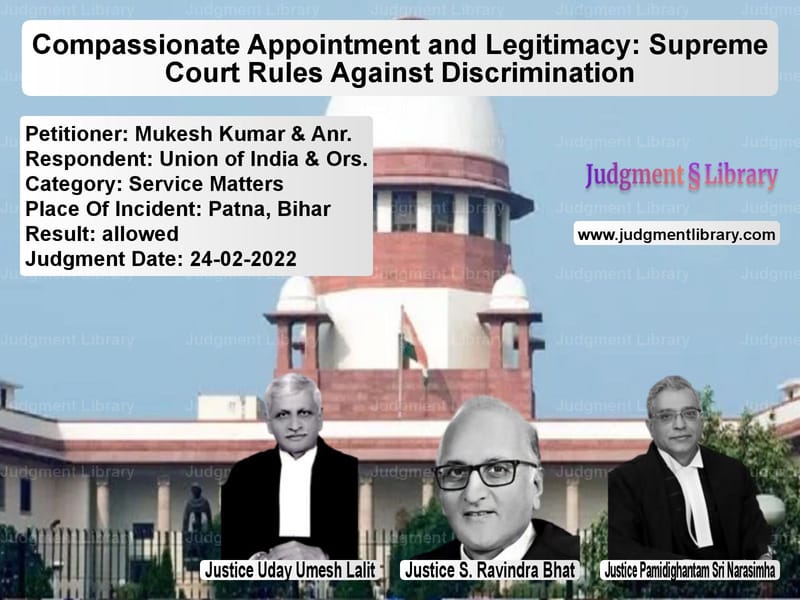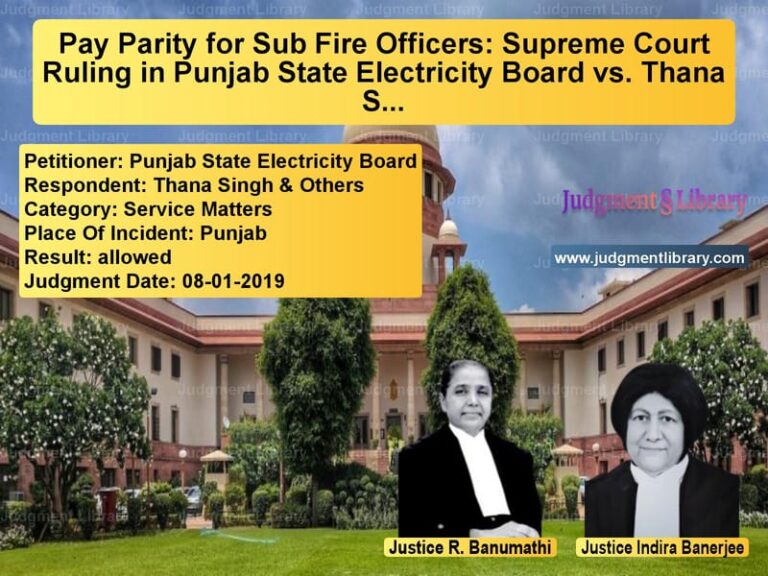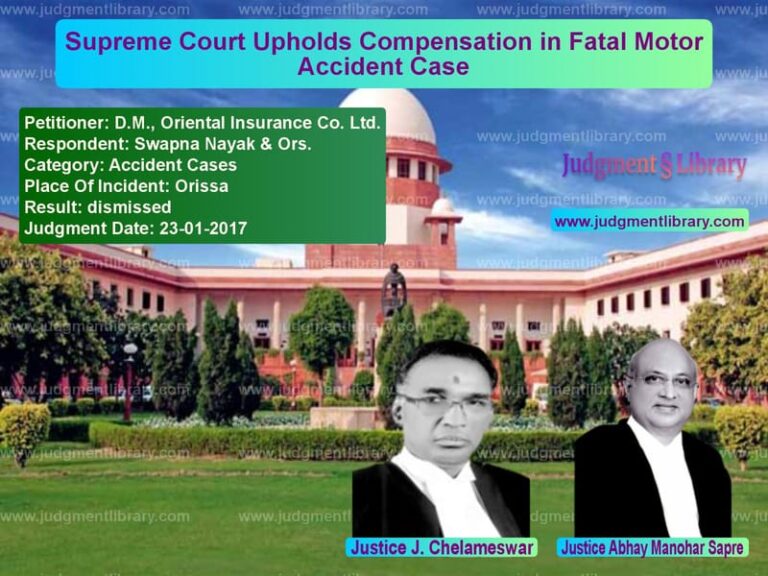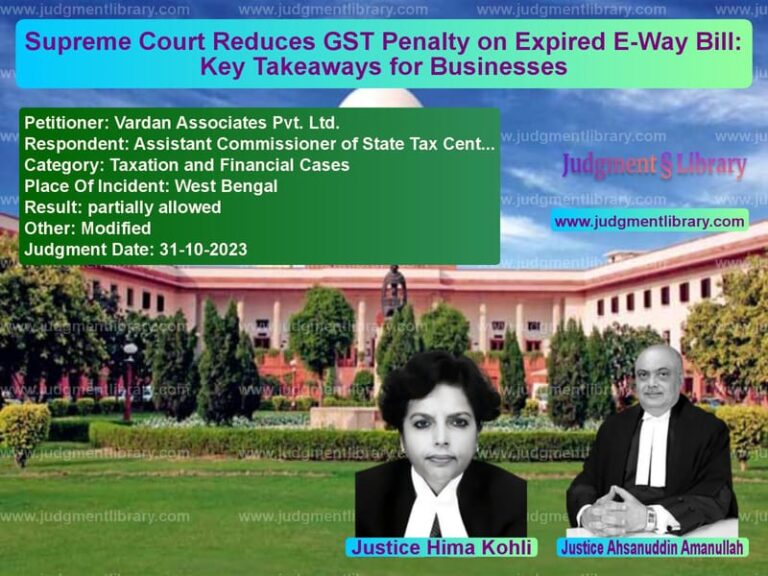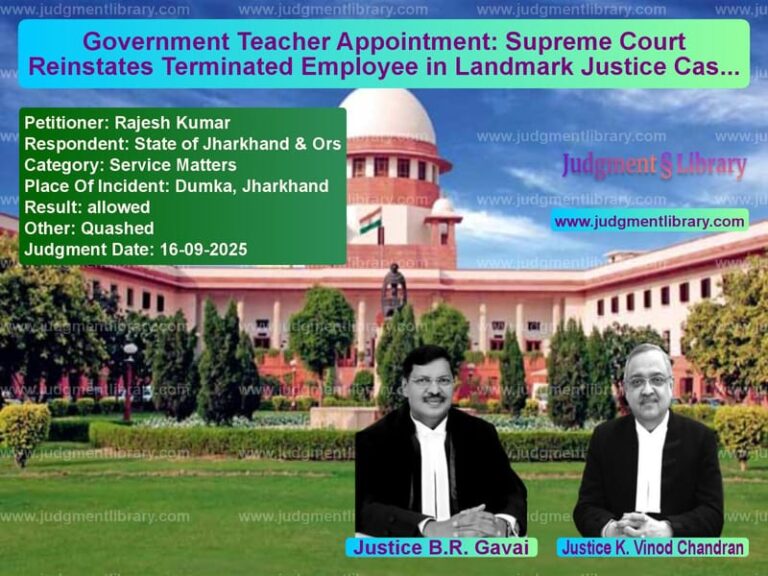Compassionate Appointment and Legitimacy: Supreme Court Rules Against Discrimination
The Supreme Court of India recently delivered a landmark ruling in Mukesh Kumar & Anr. vs. Union of India & Ors., addressing the issue of whether children born from a deceased government employee’s second wife can be denied compassionate appointment. The judgment clarifies that such a denial is unconstitutional and discriminatory under Article 16(2) of the Indian Constitution.
Background of the Case
The case arose from a dispute over the Railway Board’s policy, which barred children of a deceased employee’s second wife from being considered for compassionate appointment. The petitioner, Mukesh Kumar, was the son of the second wife of a railway employee, Jagdish Harijan, who passed away while in service on 24.02.2014.
Key developments in the case:
- After his father’s death, Mukesh Kumar’s stepmother (the first wife of the deceased) declined to seek compassionate appointment for herself and nominated him instead.
- The Railways rejected his request solely on the ground that he was the son of the second wife, citing its internal policy.
- The petitioner appealed to the Central Administrative Tribunal (CAT), which upheld the Railways’ decision.
- The Patna High Court also dismissed his writ petition.
- The petitioner then approached the Supreme Court, challenging the rejection as discriminatory and unconstitutional.
Petitioner’s Arguments
- The petitioner argued that the denial of compassionate appointment solely based on his mother’s marital status violated his fundamental rights under Article 14 and Article 16(2) of the Constitution.
- He contended that Section 16 of the Hindu Marriage Act, 1955, treats children born from a second marriage as legitimate.
- He cited the Supreme Court’s ruling in Union of India vs. V.R. Tripathi (2019), where it was held that such policies were discriminatory and had no reasonable nexus with the objective of compassionate appointments.
- The petitioner asserted that eligibility for compassionate appointment should be based on financial need and dependency, not on the legitimacy of birth.
Respondent’s Arguments
- The Union of India defended its policy, arguing that allowing children from second marriages to claim compassionate appointment would indirectly validate polygamy, which is discouraged under service rules.
- It cited a 2018 Railway Board circular that explicitly stated that only children from the first marriage would be eligible for compassionate appointments unless the second marriage was legally permitted.
- The government contended that compassionate appointments are not a fundamental right and that policies governing such appointments must be strictly interpreted.
Supreme Court’s Judgment
The Supreme Court ruled in favor of the petitioner, declaring the Railways’ policy unconstitutional. The Court made several key observations:
1. Violation of Article 14 and Article 16(2)
- The Court emphasized that once Section 16 of the Hindu Marriage Act treats children from void or voidable marriages as legitimate, denying them government benefits solely based on their birth is unconstitutional.
- The policy created two classes among legitimate children, arbitrarily excluding those born from second marriages.
2. No Justifiable Nexus to Public Policy
- The Court rejected the argument that such policies discouraged polygamy, stating that penalizing children for their parents’ choices had no reasonable connection to the objectives of compassionate appointments.
- It reaffirmed the principle that government policies must adhere to constitutional principles and cannot introduce discrimination under the guise of administrative convenience.
3. Recognition of Destitution and Dependency
- The Court reiterated that the purpose of compassionate appointments is to support bereaved families facing financial hardship after the death of a government employee.
- It ruled that a child’s financial dependency and bereavement, not the legitimacy of birth, should determine eligibility for such appointments.
Key Excerpts from the Supreme Court Judgment
The Court observed:
“The exclusion of one class of legitimate children from seeking compassionate appointment merely on the ground that the mother of the applicant was a plural wife of the deceased employee would fail to meet the test of a reasonable nexus with the object sought to be achieved. It would be offensive to and defeat the whole object of ensuring the dignity of the family of a deceased employee who has died in harness.”
Regarding discrimination based on descent, the Court stated:
“While compassionate appointment is an exception to the constitutional guarantee under Article 16, a policy for compassionate appointment must be consistent with the mandate of Articles 14 and 16. That is to say, a policy for compassionate appointment, which has the force of law, must not discriminate on any of the grounds mentioned in Article 16(2), including that of descent.”
Final Verdict
The Supreme Court allowed the appeal and issued the following directions:
- The Railways must consider the petitioner’s application for compassionate appointment without discrimination based on his birth from a second wife.
- The authorities must complete the reconsideration process within three months.
- The judgment serves as a precedent for similar cases, ensuring that children of second wives are not unjustly excluded from government benefits.
Conclusion: Implications of the Judgment
This ruling has far-reaching consequences in employment law and constitutional rights:
- It upholds the principle that compassionate appointments should be based on dependency and financial need, not legitimacy of birth.
- The judgment ensures that government policies must align with constitutional guarantees of equality and non-discrimination.
- It reinforces the legal principle that children should not be penalized for circumstances beyond their control, such as the marital choices of their parents.
- The ruling is expected to impact policies across various government departments, ensuring equal treatment of all legitimate children under Indian law.
This decision is a crucial step toward eliminating arbitrary discrimination in government employment policies and safeguarding the constitutional rights of children from all backgrounds.
Petitioner Name: Mukesh Kumar & Anr..Respondent Name: Union of India & Ors..Judgment By: Justice Uday Umesh Lalit, Justice S. Ravindra Bhat, Justice Pamidighantam Sri Narasimha.Place Of Incident: Patna, Bihar.Judgment Date: 24-02-2022.
Don’t miss out on the full details! Download the complete judgment in PDF format below and gain valuable insights instantly!
Download Judgment: mukesh-kumar-&-anr.-vs-union-of-india-&-ors-supreme-court-of-india-judgment-dated-24-02-2022.pdf
Directly Download Judgment: Directly download this Judgment
See all petitions in Employment Disputes
See all petitions in Public Sector Employees
See all petitions in Recruitment Policies
See all petitions in Legal Malpractice
See all petitions in Other Cases
See all petitions in Judgment by Uday Umesh Lalit
See all petitions in Judgment by S Ravindra Bhat
See all petitions in Judgment by P.S. Narasimha
See all petitions in allowed
See all petitions in supreme court of India judgments February 2022
See all petitions in 2022 judgments
See all posts in Service Matters Category
See all allowed petitions in Service Matters Category
See all Dismissed petitions in Service Matters Category
See all partially allowed petitions in Service Matters Category

